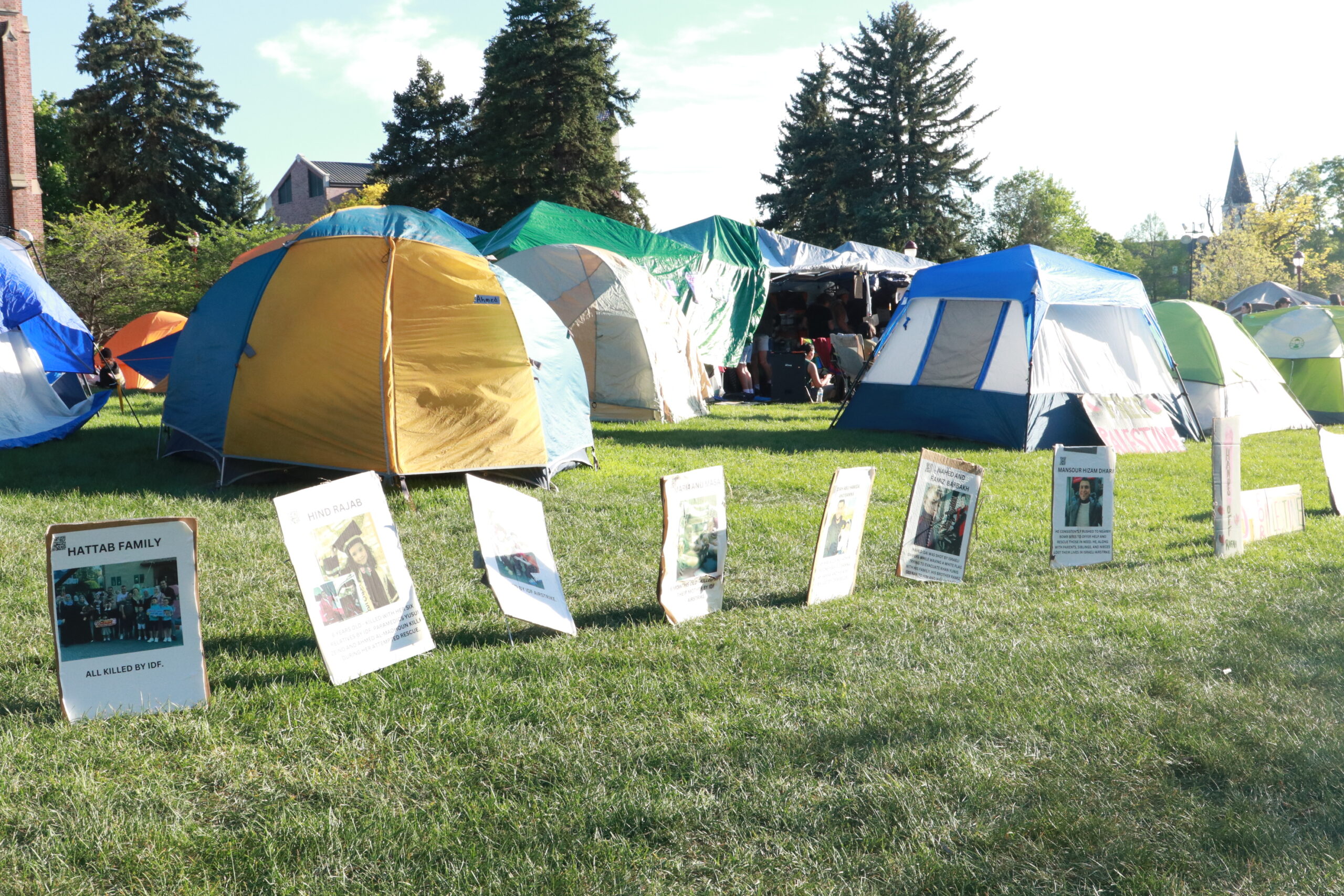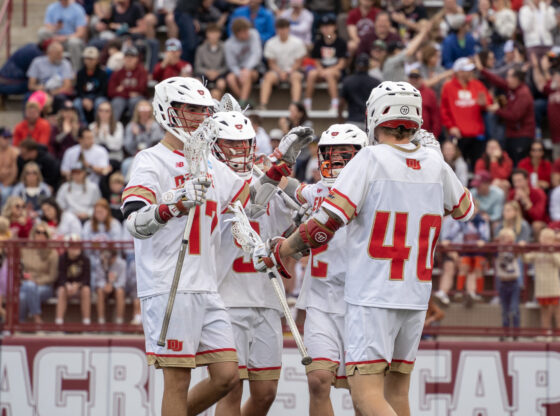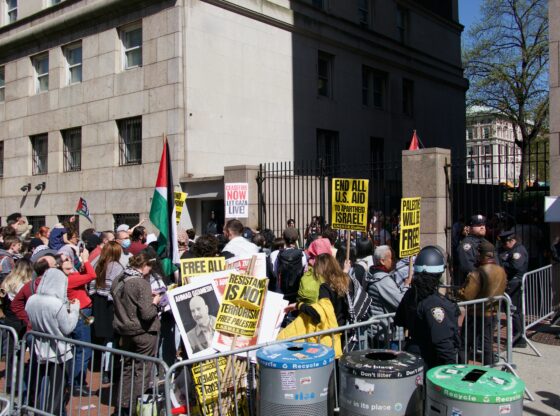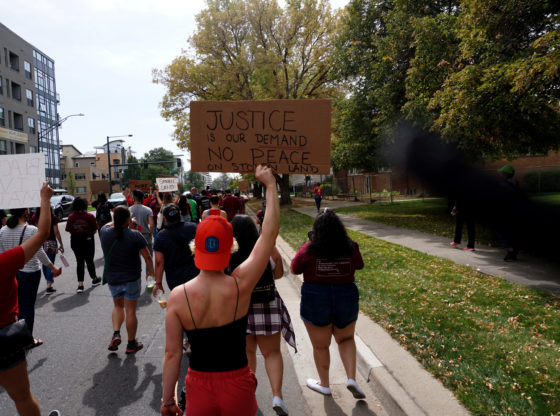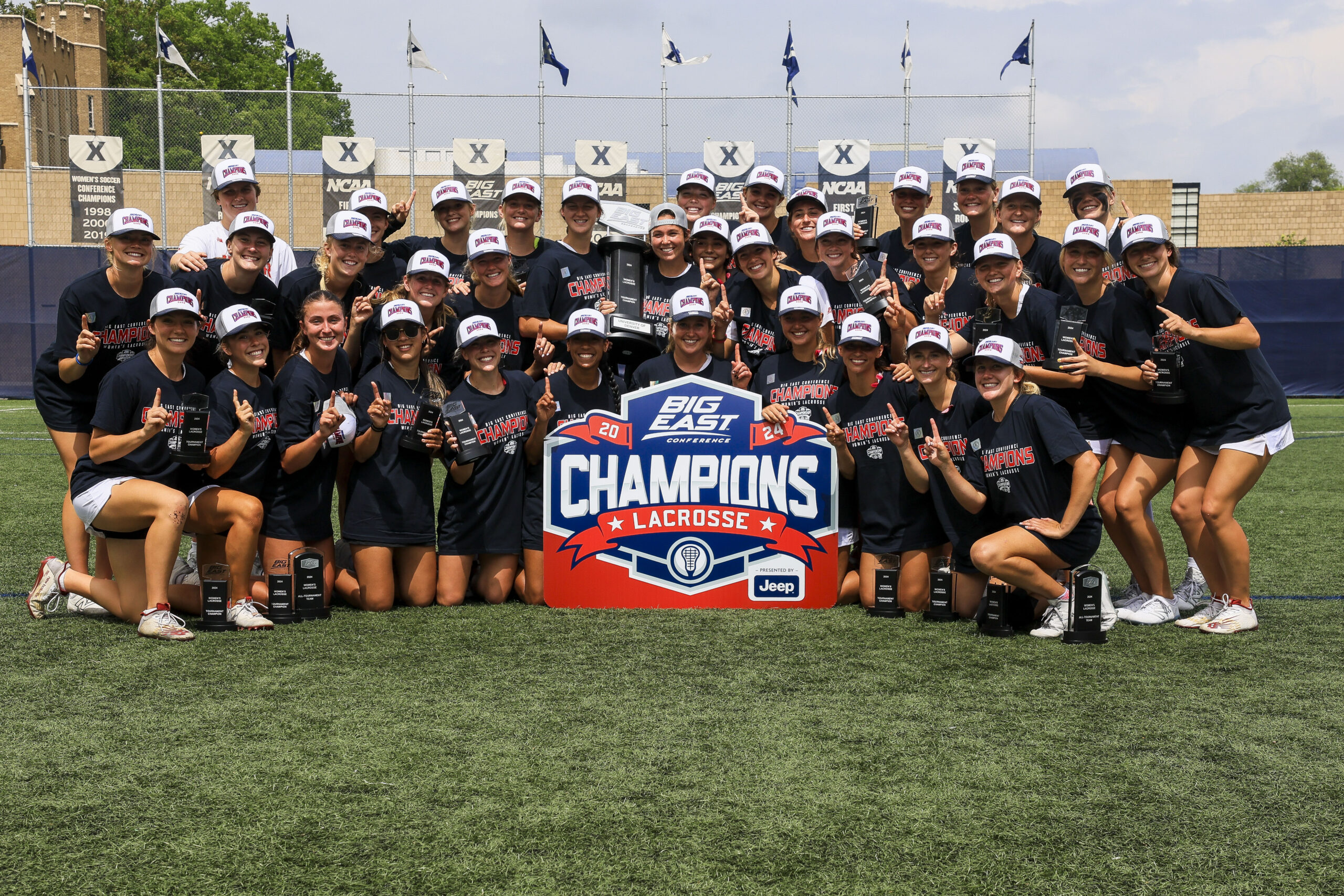On Friday, DU’s undergraduate student government held its annual debate for its executive leadership elections.
Evelyn Stovin and Tyler Miller are the presidential candidates in the election. Stovin is a third-year religious studies major who has been the Executive Chair of Gender & Sexuality Equity for USG for a year and a half. Miller is a third-year criminology major with two years of experience in various roles at USG.
On the vice presidential ticket are Alexandra Acosta and Berkeley Rebman. Acosta, who is running with Stovin, is a first-year business major. Although Acosta is in her first year, she has taken advantage of several opportunities to take on leadership positions on campus. She currently serves as the Executive Chair for Diversity, Equity, and Inclusion for USG.
Rebman, who is campaigning with Miller, opposes Acosta. Rebman is a third-year business information & analytics major with no experience in leadership positions at USG. Although Rebman has no experience in USG, she is actively involved as a leader in other areas around campus and currently serves as DUPB’s Chair of Operations and Campus Outreach.
The Miller-Rebman campaign views Rebman’s lack of USG experience as a benefit because they have diverse connections within the community. Miller and Rebman have both worked with the university’s administration. Rebman, through her work with DUPB, and Miller, through a USG committee, which works closely with the board of trustees.
“Although Berkeley is not a leader through student government, Berkeley is a leader on campus,” said Miller.
USG’s current executive leadership, President MJ Hyde, VP Zach Headley, and President Pro-Tempore Colton Arciniaga, moderated the debate. The candidates were disappointed with the student turnout for the event but hoped that more students would tune into the livestream hosted on USG’s Instagram account.
“I think the room represents the student body very well right now. The fact that it was so empty speaks to the fact that we aren’t as student-facing as we can be,” said Miller.
Miller believes USG is the problem, not the students. He says campus civil discourse is so strong right now, and if USG advertised itself better, more students would attend events.
Stovin thinks that some affinity groups view USG spaces as hostile, which may have also contributed to low turnout.
“We both work a lot with affinity groups, and they are really more aware than ever. [The affinity groups] have been engaged but not in person. For them, USG spaces are hostile spaces,” said Stovin.
When asked how USG can increase its visibility, Miller said he wants to explore videography as a medium to engage students. Rebman agreed that Instagram and the USG newsletter alone are insufficient in creating student engagement.
Although many view this year’s election as high stakes, the debate was milder than last year’s. The candidates often echoed the other’s statements, and there were few disagreements. Both tickets had similar plans to address sustainability on campus, including supporting ongoing campus organizations like the Center for a Regenerative Future.
“This wasn’t as intense or dramatic a debate as last year, which is interesting because, from what I’ve seen from talking to my constituents, people view this as way more serious of an election than last year,” said Stovin.
The Stovin-Acosta ticket has said its main goal is bringing students together to create “an overarching Denver Community.” They say that primarily they want to amplify the voices of BIPOC, queer, trans, neuro-divergent, and other marginalized members of the community whose issues may have been ignored in the past. They want to expand the executive branch to include low-income and neurodivergent accessibility positions to ensure students have equitable resources.
Miller said he would not add any new positions to the executive branch, noting that there are many chair positions that USG is already struggling to fill.
The Miller-Rebman ticket also believes in creating a more united DU community. They say encouraging collaboration between RSOs can help achieve that goal.
Both tickets believe fostering personal relationships is the best way to represent the undergraduate student body.
Students can vote starting on Monday, May 5, when ballots are emailed to students, until Sunday, May 12 at 11:59 p.m.


